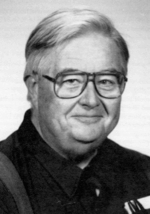Description:
The Craig Memorial Lecture Series is proud to host Dr. John Gimnig of the Centers for Disease Control and Prevention, Division of Parasitic Diseases and Malaria.
Following the demonstration that malaria was transmitted by mosquitoes, vector control became a mainstay of malaria control programs, beginning with larvicide source management and indoor spray programs. Malaria rates declined rapidly in many temperate countries but remained stubbornly persistent in more tropical areas. The advent of DDT raised expectations of more widespread malaria elimination and even eradication, culminating in the Global Malaria Eradication Campaign. However, despite its lofty promise, Africa was largely ignored during the eradication campaign. The collapse of the campaign resulted in a de-emphasis of vector control throughout malaria endemic countries. It was not until the demonstration that insecticide treated nets reduced malaria morbidity and mortality that vector control experienced a revival. With global support for the scale up of prevention and control, malaria burden in Africa has declined by approximately half with much of the reduction attributed to vector control efforts. However, the decline in malaria burden has stagnated and new interventions are urgently needed to reinvigorate malaria prevention efforts and to achieve global targets outlined by the WHO technical strategy for malaria.
About the Speaker:

Dr. John Gimnig is a Research Entomologist with a long history of research on the biology of mosquitoes, particularly as it relates to the transmission and control of malaria. He received a B.S. in Biological Sciences from the University of Notre Dame and an M.S. in Epidemiology and a PhD in Entomology from the University of California, Davis. He began working with the Centers for Disease Control as a research fellow in western Kenya where he supported a large-scale trial of insecticide treated nets and initiated studies on the larval ecology and insecticide resistance of malaria vectors. He moved to Atlanta as a fellow in the Malaria Branch within the Division of Parasitic Diseases and Malaria before moving to the Entomology Branch within the Division of Parasitic Diseases and Malaria where he currently serves as the lead for the Operations Research Team. Dr. Gimnig has managed several large research projects and is currently a co-investigator on a UNITAID funded project evaluating the efficacy of spatial repellents, a study of the efficacy of attractive targeted sugar baits, and a trial of house modification to reduce malaria transmission. In addition to managing research projects, Dr. Gimnig also has extensive experience working on programmatic issues, providing technical support to the US President’s Malaria Initiative as a member of the Vector Monitoring and Control Team, the Operational Research Committee and the Elimination Technical Team as well as serving as the entomologist back stop for Kenya, Malawi and the Mekong countries. He has also served on numerous committees and working groups with the World Health Organization including the WHO Pesticide Evaluation Scheme, the Vector Control Technical Expert Group and numerous ad-hoc expert review groups and guidelines development groups.

The George B. Craig, Jr. Memorial Lecture Series honors Notre Dame faculty member and distinguished scientist George Brownlee Craig, Jr. (1930-1995). A Chicago native, Craig joined the Notre Dame Biology faculty in 1957 after receiving a Bachelor’s degree from Indiana University and Master’s and Ph.D. degrees from the University of Illinois. While at Notre Dame, he established a world-renowned research program in mosquito biology and genetics, serving as advisor to 40 graduate students and 39 postdoctoral fellows, with whom he published more than 500 scientific papers. He was a passionate teacher and mentor to countless undergraduate students. Recipient of numerous awards and honors during his career at Notre Dame, he was honored by the Entomological Society of America in 1975 with its first Distinguished Teaching Award, received the Hoogstrahl Medal from the American Committee for Medical Entomology, and in 1983 became the first Notre Dame faculty member to be elected to the prestigious National Academy of Sciences. This lectureship is funded, in part, by an endowment established from contributions donated in his memory.
Originally published at globalhealth.nd.edu.